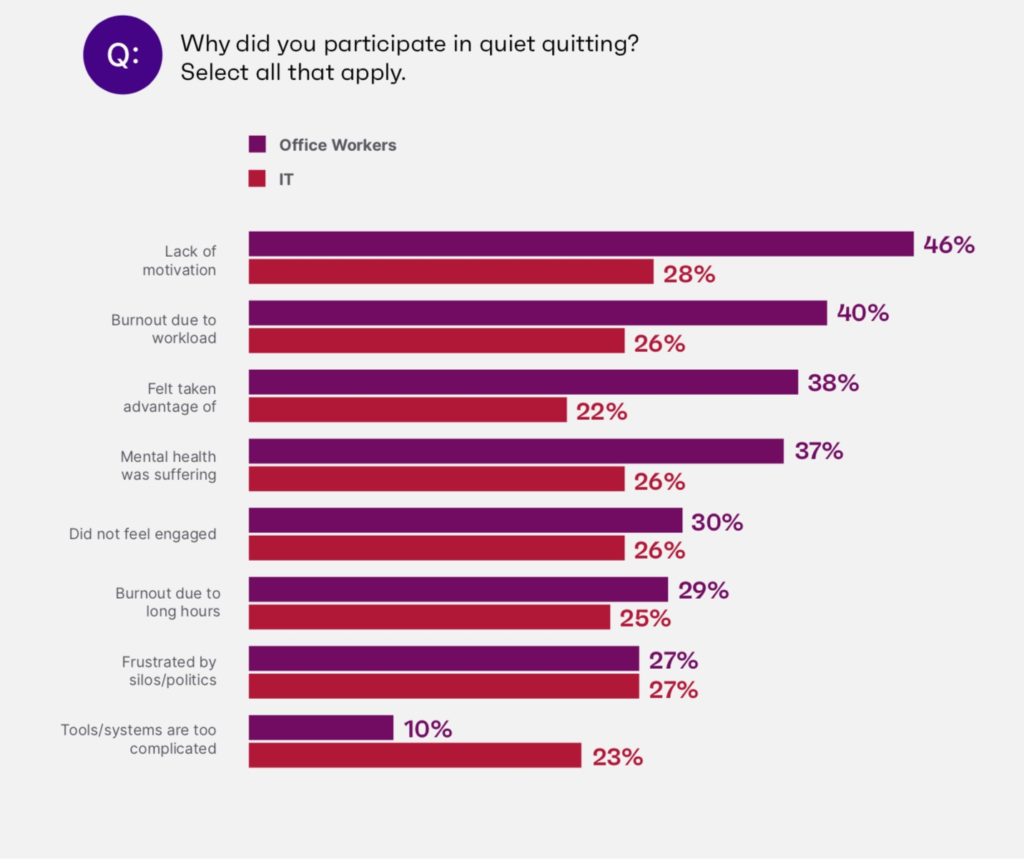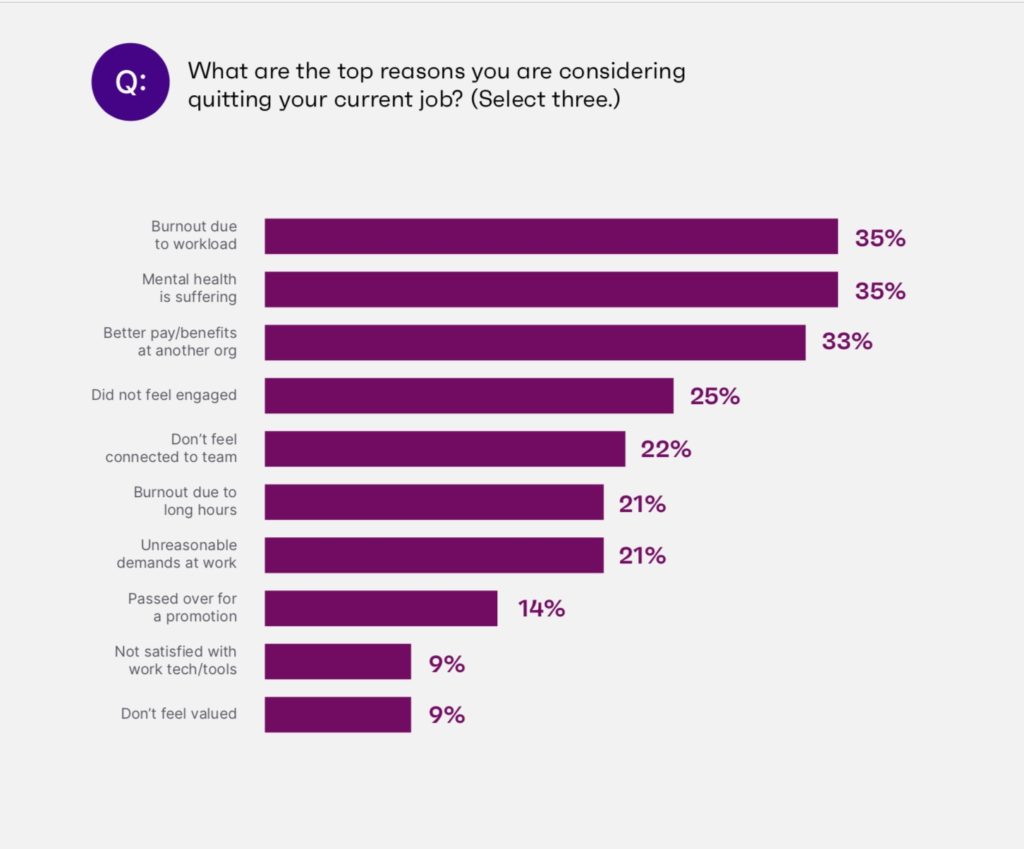Knowledge workers, especially younger employees, are burnt out, disengaged, and quiet quitting, a new report has unveiled.
The new report from automation platform Ivanti, found that one-third of office workers under 40 admit to “quiet quitting”. Additionally, over one in four office workers under 40 are considering leaving their jobs in the next six months. Workers in the UK (29%) and Australia (32%) are most likely to report that they are considering quitting. The top reasons for the ready-to-walk mindset are burnout due to workload (35%) and mental health suffering (35%). Better pay ranks third at 33%.
There is growing acceptance that hybrid and remote work options boost employee satisfaction and make work-life balance more achievable. Seven out of 10 (71%) of organisational leaders surveyed said remote work has a positive impact on employee morale, according to the results of 2023 Report: Elevating the Future of Everywhere Work. Ivanti collaborated with ‘Future of Work’ experts and surveyed 8,400 office workers, IT professionals and C-level executives across the globe to understand attitudes, expectations and challenges facing future-looking organisations and their employees. The research also explored what happens when employees want to work anytime, anywhere… but their company isn’t equipped to deliver it.
HYBRID/VIRTUAL WORK PREFERENCES REIGN
The number of employees wanting control over where they work has remained consistent since Ivanti’s 2022 Everywhere Workplace Report – 71%. But the research found that employers and employees remain locked in a struggle about who gets to define the time, location and manner of work. The report also found that:
- 66% of office workers say they have not experienced any negative side effects from hybrid/virtual work – a 15-point increase from the 2022 survey.
- Only 43% of employees can work in the location of their choice
- Only 2% of office workers believe they have been passed over for a promotion due to hybrid working, a significant decrease from 9% in the 2022 survey.
- Office workers would be willing to take an 8.9% pay cut to be able to work remotely, an increase from 5% in 2022.
Additionally, the report finds that the benefits and flexibility of ‘everywhere work’ has not yet been fully democratised. When surveying executives and IT professionals the ‘preference gap’ shrinks to 12 points and 13 points respectively.

EMBRACING FLEXIBLE WORKING
“When it comes to how and where employees work – leaders who do not embrace and enable flexibility where they can – also risk not reaping the benefits of a more engaged, more productive workforce,” said Jeff Abbott, CEO of Ivanti. “Attracting and retaining the very best talent will always be an executive priority, but the organisations that embrace an ‘everywhere work’ mindset – and supporting tech stack – will have a sustainable competitive advantage. There has been a seismic shift in how and where employees expect to get work done and it’s imperative for leaders to break down culture and tech barriers to enable it.”
Employees are clamouring for new ways of working. They want to safeguard personal time and minimise the most burdensome parts of work life: long commutes, time away from family and the negative impacts on health and wellbeing. But so far employers are slowly feeling their way forward, still treating virtual working as an experiment that may yet be reversed.

WORKLIFE BALANCE
There is growing acceptance that hybrid and remote work options boost employee satisfaction and make worklife balance more achievable. Fully 71% of organisational leaders surveyed by Ivanti say remote work has a positive impact on employee morale. Additionally:
- 66% of office workers say they have not experienced any negative side effects from hybrid/virtual work – a 15-point increase from the 2022 survey.
- Only 2% of office workers believe they have been passed over for a promotion due to hybrid working, a significant decrease from 9% in the 2022 survey.
- Office workers would be willing to take an 8.9% pay cut to be able to work remotely, an increase from 5% in 2022.
ENABLING EVERYWHERE WORK
The report also outlines four ways businesses can enable ‘everywhere work’:
1. Invest in get-it-done-anywhere technology.
It’s time to think about collaboration not just in terms of communication but also in terms of process. A simplified organisation-wide service management solution makes work life easier and more productive, no matter the location.
2. Challenge how organisations think about security.
When employees work virtually, there’s less oversight of their activities, meaning organizations take on additional risks. To release some of that pressure, employers should invest in an organisation-wide, risk-based remediation strategy.
3. Beware of IT burnout.
Business leadership, in the years to come, will be about taming complexity, and simplifying tech stacks and workflows to minimise employee burnout.
4. Reduce the preference gap.
Listen to employees and look for innovative technologies like dynamic collaboration tools, workflow automation and even AI-powered bots to empower workers to be more effective and efficient.
Download the full report here.







































